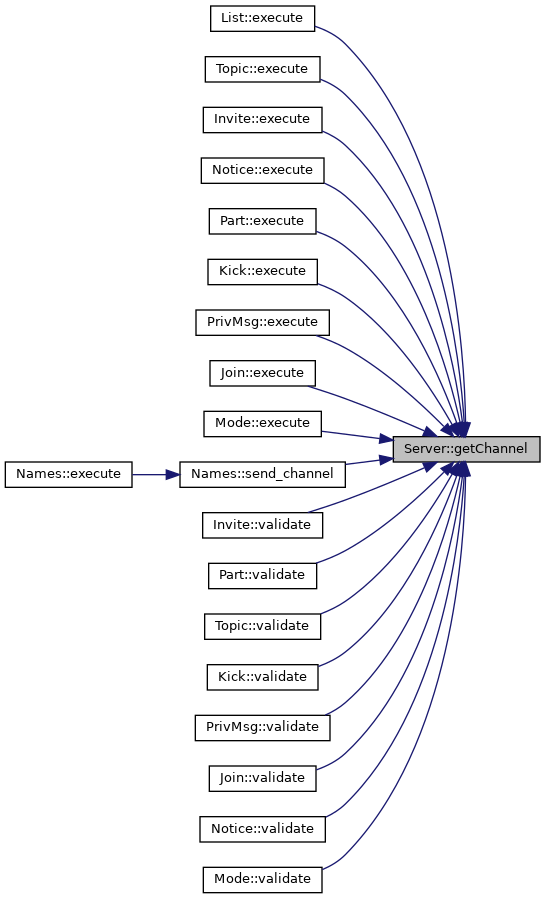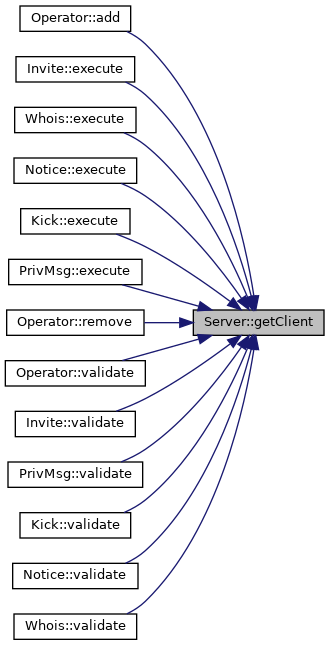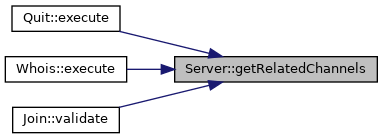#include <Server.hpp>
◆ Status
| Enumerator |
|---|
| OFFLINE | |
| ONLINE | |
| CLOSED | |
◆ Server()
| Server::Server |
( |
std::string |
host, |
|
|
std::string |
port, |
|
|
std::string |
password |
|
) |
| |
Here we init the server instance.
- Parameters
-
| port | The port to listen to |
| password | The password to use |
◆ ~Server()
◆ close_server()
| void Server::close_server |
( |
| ) |
|
◆ createChannel()
| Channel* Server::createChannel |
( |
std::string & |
name, |
|
|
std::string & |
password |
|
) |
| |
|
inline |
◆ deleteClient()
| void Server::deleteClient |
( |
int |
fd | ) |
|
|
inline |
◆ getChannel()
| Channel* Server::getChannel |
( |
std::string & |
name | ) |
|
|
inline |
◆ getChannels()
| std::vector<Channel *> Server::getChannels |
( |
void |
| ) |
|
|
inline |
◆ getClient()
| Client* Server::getClient |
( |
std::string const & |
name | ) |
|
|
inline |
◆ getClientIndex()
| size_t Server::getClientIndex |
( |
std::string & |
name | ) |
|
|
inline |
◆ getCommand()
| Command* Server::getCommand |
( |
std::string & |
name | ) |
|
|
inline |
◆ getPassword()
| const std::string Server::getPassword |
( |
void |
| ) |
|
|
inline |
◆ getRelatedChannels()
| std::map<std::string, Channel *> Server::getRelatedChannels |
( |
Client * |
client | ) |
|
|
inline |
◆ getRelatedClients()
| std::vector<Client *> Server::getRelatedClients |
( |
Client * |
client | ) |
|
|
inline |
◆ getServerName()
| const std::string Server::getServerName |
( |
void |
| ) |
|
|
inline |
◆ hasPassword()
| bool Server::hasPassword |
( |
void |
| ) |
|
|
inline |
◆ is_running()
| bool Server::is_running |
( |
void |
| ) |
|
|
inline |
◆ run()
◆ _channels
| std::map<std::string, Channel *> Server::_channels |
◆ _clients
| std::map<size_t, Client *> Server::_clients |
◆ _commands
| std::map<std::string, Command *> Server::_commands |
◆ _fd
◆ _pfds
| std::vector<pollfd> Server::_pfds |
◆ _status
The documentation for this class was generated from the following files:









